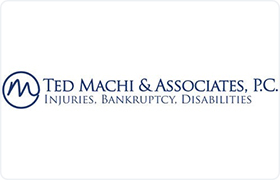BANKRUPTCY
A legal proceeding that relieves you of the responsibility of paying your debts or provides you with protection while attempting to repay your debts. There are ...
(more...)A legal proceeding that relieves you of the responsibility of paying your debts or provides you with protection while attempting to repay your debts. There are two types of bankruptcies -- liquidation, in which your debts are wiped out (discharged) and reorganization, in which you provide the court with a plan for how you intend to repay your debts. For both consumers and business, liquidation bankruptcy is called Chapter 7. For consumers, reorganization bankruptcy is called Chapter 13. Reorganization bankruptcy for consumers with an extraordinary amount of debt and for businesses is called Chapter 11. Reorganization bankruptcy for family farmers is called Chapter 12.
 x
x

 Ted Machi Arlington, TX
Ted Machi Arlington, TX Practice AreasExpertise
Practice AreasExpertise
